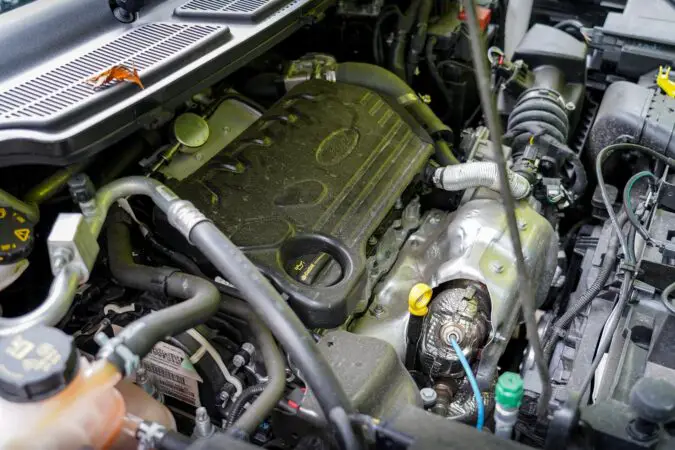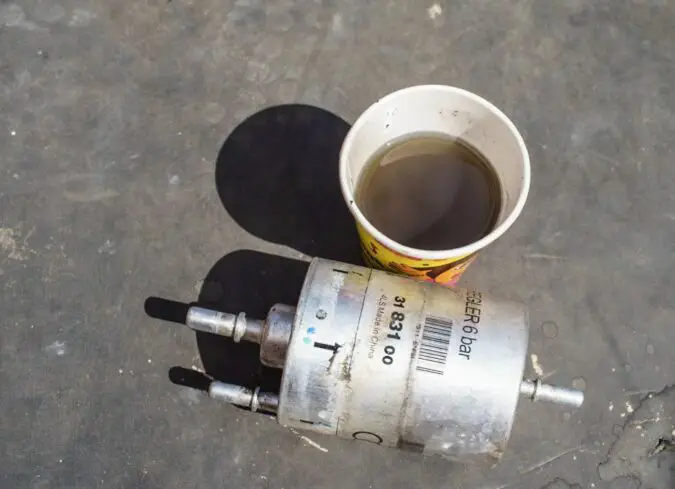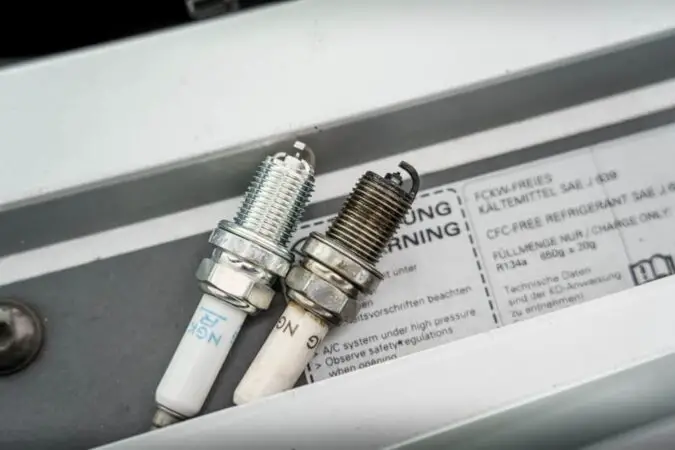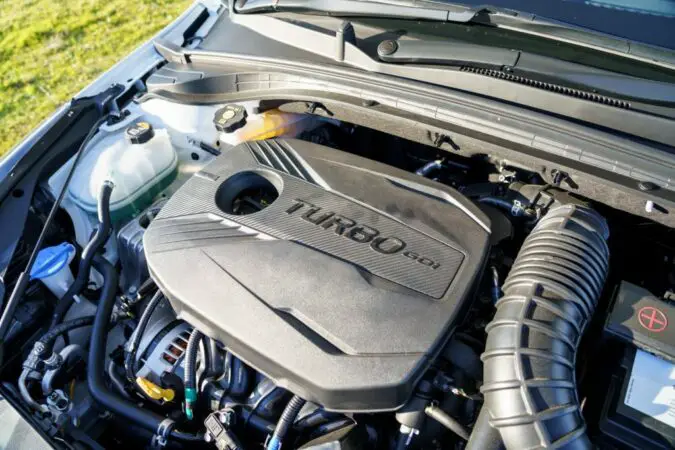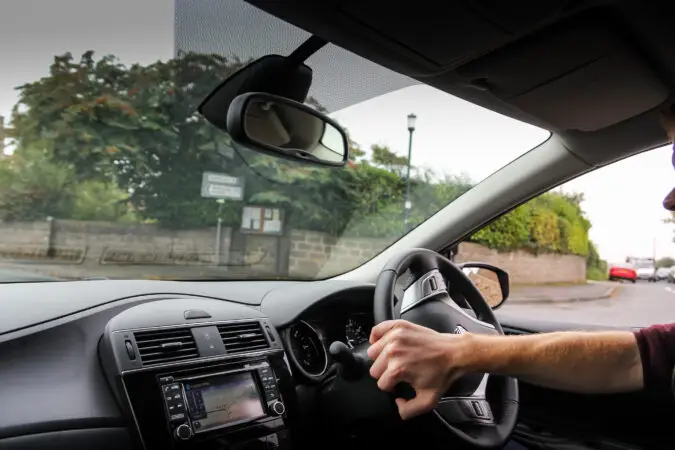Every car owner’s utmost desire is to have a steady, smooth ride with their car. However, some circumstances can jeopardize the smooth running of your car, and you’d be faced with a problematic car, which can be very frustrating. These problems are low acceleration without picking up, car jerking, and many other problems. For example, your car loses power then comes back.
There might be some underlying internal problems with your car, majorly in the engine area. Many things cause this disorder, and it can happen in two different forms. First, your car loses power consistently through acceleration or repeatedly comes and goes.
Several reasons can make your car lose power and then come back. For example, faulty spark plugs can make your car jerky and accelerate slowly. Also, if your car has a bad fuel pump, it can accelerate normally at the onset and gradually lose its power entirely. Other problems, like faulty fuel filters, exhaust problems, and faulty sensors, can make your car lose power.
However, if you’re uncertain why your car loses power when accelerating, read this article to ascertain the main cause. You’ll learn the different reasons why your car suddenly shuts down and how to remedy the situation.
- What It Means
- Why Your Car Loses Power
- Reasons & Solutions
- Scenarios And Possible Diagnosis
- Loses Power While Accelerating
- Car Jerking
- Last Words
- FAQs
What It Means For Cars To Lose Power
Your car losing power means your car is shutting down suddenly while accelerating. You’ll notice this problem when your foot is fully pressed on the accelerator pedal to speed up, but your car won’t speed up.
At some point, it may even begin to lose its power. Sometimes this situation can be consistent or may come and go at intervals. That is very frustrating because your car’s movement will either be slow or jerky.
3 General Areas Why Your Car Loses Power
Several reasons can cause power loss in your car, but for proper understanding, it can be categorized into 3 major areas.
1. Mechanical Problems
Mechanical faults are some of the reasons your car can lose power at some point. Some of these mechanical problems are blocked fuel filters and low degrees of compression in your engine.
2. Malfunctioning Of The Actuators
If the actuators in your car are malfunctioning, then they might be a reason why your car loses power. For example, if your spark plugs are bad, your car will not accelerate properly. A damaged fuel pump will hinder the smooth flow of fuel to the engine and other areas. That will also make your car jerky or cause you to lose power.
3. Faulty Sensors
Faulty sensors can’t be neglected as they also contribute to your car losing power while driving.
Sensors like MAF sensors (to find out more, check out our guide on what is a MAF sensor), O2 sensors, oxygen sensors, and others related to the fuel injection system, for example, crankshaft position sensor, camshaft position sensor, throttle position sensor (or the throttle body sensor), intake air temperature sensor (you can learn more in our guide on the P0113 Dodge code), and many others. So, when these sensors malfunction, your car will lose power or becomes rather jerky.
Car Loses Power Then Comes Back: Reasons And Fixes
Car Loses Power Then Comes Back, Causes #1: Blocked Fuel Filter
A fuel filter is responsible for filtering the fuel of every impurity before it finds its way into the engine. A blocked fuel filter will not allow a sufficient quantity of fuel to flow into the engine, resulting in a loss of power while accelerating or at intervals.
Remedy
Locate the faulty fuel filter close to your engine or fuel tank and examine it carefully. The best option would be to replace it; if blocked. You can either adopt a DIY method if you know how to fix it or send it to a repair shop to replace it.
Car Loses Power Then Comes Back, Causes #2: Choked Air Filter
Clean air is important for your engine to operate optimally. However, if the air gets contaminated by several impurities, the engine’s combustion chamber will become damaged. So the air filter filters every bit of dirt and dust to have clean air. It can function for about 15,000 to 30,000 miles before it wears out and your car begins to lose power.
Remedy
Replace a clogged or choked air filter with a new one. You can visit your local mechanic’s workshop to get it fixed.
Car Loses Power Then Comes Back, Causes #3: Defective Fuel Pump
Fuel pumps transport fuel from the fuel tanks to your car’s engine. However, the fuel pump must be strong enough to transport fuel at very high pressure to the engine. Likewise, low pressure will not allow the fuel injector to distribute the desired quantity of fuel in the combustion chamber.
This deficiency makes your car lose power during acceleration. A bad fuel pump becomes more noticeable at high revs than at low revs (you can learn more in our guide on what does a fuel pump do). You could also learn more in our guide on how to know if fuel pump is bad.
Remedy
The only option for a solution is the total replacement of the fuel pump so that fuel can get to the engine without any hitches on the way.
Car Loses Power Then Comes Back, Causes #4: Bad Ignition Coils
The coils in your ignition specialize in converting power from your car battery to ignite your engine. However, bad ignition coils (which you can confirm by figuring out how to test a coil) will interrupt the fine mixture of air/fuel and cause your engine to misfire. A non-igniting ignition coil will stop the production of power in your engine, and this will result in car jerks or your car losing power and then coming back.
Again, engines with one coil and a low cylinder count experience an ignition failure more often than engines with multiple coils and cylinders. You can find out more in our guide on how long can I drive with a bad ignition coil.
Remedy
If your ignition coil is faulty, replace it immediately to avoid further damage. You can consult an expert for a proper diagnosis and repair.
Car Loses Power Then Comes Back, Causes #5: Faulty Spark Plugs
Suppose the spark plugs are faulty or worn out. In that case, your engine will begin to malfunction or may not start because the spark plugs help ignite the air-fuel mixture inside the combustion chamber by transmitting electrical current from the ignition coils.
Hence, your engine will shut down if there’s no proper transmission of electrical current because of faulty spark plugs (which you can diagnose by learning how to test a spark plug). However, it would be best to fix that urgently to avoid its degeneration into bigger problems.
Remedy
Replace every faulty spark plug with a new one. It’s a simple DIY procedure, but if you can’t fix it, take your car to a repair shop for proper diagnosis and replacement.
Car Loses Power Then Comes Back, Causes #6: Clogged Catalytic Converter
The exhaust system is responsible for expelling unwanted and dangerous gases. If the gases are expelled faster, combustion will become faster and produce more power for the engine to rev up.
However, your car will malfunction if the catalytic converter is clogged up. A clogged catalytic converter will occur if the flow of the air-fuel mixture becomes too rich.
Remedy
To remedy the situation, use a high-quality fuel additive for every 3,000 miles you drive to help reduce impurities clogging the catalytic converter. Also, clean your catalytic converter with the exact cleaner designed for cleaning it, preferably aftermarket cleaners. But, if it becomes unmanageable, you can take it to a mechanic’s workshop for a total replacement if need be.
Car Loses Power Then Comes Back, Causes #7: Damaged Mass Airflow Sensor
Cars with gas engines are the only category affected by a damaged mass airflow sensor (MAF). The MAF is responsible for measuring the amount of air that flows into the engine. It sends information to an electronic device called the Powertrain Control Module (PCM).
The information sent to the PCM is used to determine the engine’s load. However, if this sensor begins to malfunction, it will not send the information again, and your car will lose power and then come back intermittently.
Car Loses Power Then Comes Back, Causes #8: Bad Camshaft Position Sensor
This is found in modern gas and diesel-engine cars. They’re responsible for recording the speed of your car’s camshaft and then transmitting the information to the electronic control module (ECM). The ECM’s information helps to check the ignition and fuel injection. The ECM receives information from most of the sensors in your car.
However, a camshaft position sensor can begin to malfunction. Because of this, the information concerning the speed of the camshaft will not be transmitted to the ECM again. That affects the engine performance, causing your car to lose power.
Remedy
A faulty camshaft position sensor is better replaced with a new one. Visit your local mechanic’s workshop for repair. Also, it is cost-effective, around $50 to $100.
Car Loses Power Then Comes Back, Causes #9: Defective Oxygen Sensor
The oxygen sensor measures the amount of gas leaving your exhaust after every combustion cycle. The information is transmitted to the electronic control module (ECM) to determine the real-time-air-fuel ratio going into the combustion chamber. The O2 sensor is placed on the exhaust pipes. It also helps in the control of emissions.
However, suppose the oxygen sensor begins to malfunction. In that case, it’ll transmit wrong readings to the electronic control module (ECM), and the real-time-air-fuel ratio going into the combustion chamber will be unknown. That will result in loss of power in your car when ascending or descending a hill.
Remedy
The best way to handle a damaged O2 sensor is to replace it with a new one for maximum operation. However, you can clean the sensor through a DIY method to temporarily function before it packs up again. However, please do not delay in replacing it to avoid further problems.
Car Loses Power Then Comes Back, Causes #10: Defective Turbocharger
A turbocharger adds extra horsepower to the engine, and if your turbocharged car loses power and comes back, you likely have a defective turbocharger. A loose turbo boost pipe will decrease the pressure added to the car and degrade the overall performance of your engine.
Remedy
If the turbocharger in your car is malfunctioning, replace it with a new one. You can also boost your turbocharger to perform better.
Car Loses Power Then Comes Back, Causes #11: Compression Problems
The combustion going on in the engine helps to generate power for acceleration, and this is assisted by cylinder compression. However, low compression in your car’s engine will not generate enough power, and acceleration will become poor. Also, inappropriate ignition in your car’s engine is caused by low compression.
Remedy
You are required to replace the parts that are causing compression leaks. That includes the piston, piston rings, valve, head gasket, or camshaft.
Car Loses Power Then Comes Back, Causes #12: Build Up Of Carbon On Fuel Injectors
Fuel injectors are in charge of sending fuel into the combustion chamber, and this is done at high pressures. The spraying method is adopted to distribute fuel evenly in the chamber for proper combustion. A single mistake can affect combustion, leading to a loss of power or damage to the piston.
Another major problem with the fuel injector is the build-up of carbon, which happens due to low-quality fuel. The presence of carbon will disrupt the even distribution of fuel into the cylinders by the injectors. That can stall your car or make it lose power.
Remedy
You can clean your fuel injectors with a high-quality fuel system cleaner to expel any carbon build-up. That will enable the injectors to spray fuel for proper combustion to take place.
Scenarios And Possible Diagnosis
Your car may go off under different conditions. Below are some scenarios where your car loses power and then comes back.
1. When Your Car And Light Goes Off While Accelerating
You’ll discover that your lights and engine go off abruptly whenever you ride over a bump or veer around sharply on the road. That can be hazardous and frustrating. Then, you’d notice that your engine and lights come on again after some time.
Diagnosis
At first, clear your car off the road and start the engine again; at this point, just let the car idle. Open the bonnet and shake the battery cables and small wires around. If your engine and headlight go off while doing this, then the cable or wire is loose or corroded. Send your car in for a repair or replacement of the cables or wires.
Also, it could be a damaged or worn-out ignition switch or a blown fuse. But in this case, your lights and other electronic gadgets in your car will still work, but the engine will not start.
2. When Your Car Loses Power After Some Minutes Of Operation
When you start your car, after driving for some minutes, your car will lose power. However, if you allow it to cool down, you’ll notice that your car will start again but will go off again after some minutes of driving. In this case, the lights and radio will not go off.
Diagnosis
Check for a damaged ignition coil, a faulty ignition module, a defective crankshaft position sensor, and a faulty fuel pump.
The first step is to remove the coil or sensor from your car. Next, test the primary and secondary ignition coil or sensor resistance using a multimeter, and check if your results correlate with the information in your vehicle’s manual.
Warm your sensor or coil with a hot air gun or hair dryer. Redo the test again to check for any difference. However, if the result states that the ignition coil is at infinite resistance, you must replace it.
3. When Your Car Loses Power While Idling
You may notice that your car loses power when it’s idle. Sometimes the check engine light might turn on as a result of this.
Diagnosis
Vacuum leaks might be the problem, particularly in cars with a mass airflow (MAF) sensor. Also, check the brake booster, EGR system, PCV valve, and intake gasket. If so, you might notice signs like the P0113 Ford error code.
If the check engine light (CEL) turns on, trouble codes P0171 (such as the P0171 Toyota P0171 Nissan code), P0174 (like the P0174 Chevy code), or P0300 may appear, although every model responds differently. Furthermore, you can examine the engine speed sensor for faults or loose wires. You can learn more in our guide on the transmission speed sensor location.
Again, when your car’s engine is cold, it can go off while idling. The reason for this could be a bad sensor sending the wrong information to the electronic control module (ECM).
You can diagnose a faulty fuel pressure regulator (it could also be the fuel pump low pressure symptoms), faulty MAF sensor, or a defective manifold absolute pressure (MAP) sensor. Also, check for a bad engine coolant temperature (ECT) sensor, a faulty throttle position sensor (TPS), and an intake vacuum leak.
Additionally, your check engine light may turn on if your sensor is faulty. But if it fails to come on, check for trouble codes to ascertain the root cause of the problem.
4. When Your Engine Goes Off While Driving But Restarts Once You Do
Sometimes your car may slow down while driving and gradually go off entirely. The signs it gives before going off often look like you’ve exhausted your throttle. Regardless, your fuel system may be faulty.
Diagnosis
A clogged fuel filter, bad fuel pressure regulator, and fuel pump may be the most likely culprits. We recommend replacing all these components where necessary.
How To Handle A Car That Loses Power While Accelerating
Below are some ways you can handle your car if there’s a sudden breakdown or loss of power. Follow these steps until you’ve fixed your car and it’s fully operational.
1. Ensure To Park Safely
Once you notice a sign of a breakdown or malfunction, clear off the road immediately and park by the roadside before it shuts down completely. Next, turn on the hazard warning light to notify oncoming vehicles to avoid a collision if they’re not paying attention.
2. Examine The Car To Identify The Exact Problem
Examine the car to identify the root cause of the sudden loss of power. However, you may not be conversant with some car faults, but you check the tires and examine the fuel tanks to know if there’s a leakage or reduction. Also, you can check the radiator to know if it’s overheating, then cool it down with water, and check the battery as well to ensure the battery head isn’t off, etc.
3. Seek Help
Seek help from passers-by, or if you’re on a highway, you can wave at oncoming vehicles for help. If you’re knowledgeable about car repairs, you can get some tools and fix them. If not, ask for a good mechanic around and send your car for repair. So, do try to find the best car repair shop near me.
4. Contact An Expert Or Car Salvage Service
Sign up for a car salvage service in case of any eventuality. Once you’re faced with a sudden breakdown, just call the lifesaver and narrate the nature of the problem. Help will come from them immediately with a support package.
5. Get Ready For The Worst Case Scenarios
Make sure you have simple DIY tools inside your vehicle’s trunk for unforeseen circumstances. Before you drive out, fill up your gas tank, check the oil gauge, and check your tires. If your car loses power while accelerating, be ready for any outcome and fix the cause of the breakdown appropriately.
Car Jerking
Car jerking is when your car stutters or shakes behind the wheel when accelerating. That means there’s an interference with the power distribution around the car. Most of the time, car jerking happens at the point of acceleration or braking. This situation is very disheartening because it’ll stall your journey.
Why Car Jerks When It’s Filled With Gas
This has to do with a blocked catalytic converter. Unwanted and dangerous gases are expelled from the engine by the exhaust so that combustion can occur successfully. Your car will operate smoothly and at a high acceleration rate if it expels more gas than it produces.
However, if the air/fuel mixture flowing through your catalytic converter becomes too rich, it can get blocked, thereby cutting off fuel and airflow from the engine. Thus making your car jerk.
Last Words On Car Loses Power Then Comes Back
Hopefully, you must have seen why your car loses power and then comes back while accelerating or when it is idle. This article has clearly stated the reasons for these malfunctions and their possible solutions. A simple DIY procedure can fix some. But if you can’t, visit an auto repair shop for proper diagnosis and repair.
FAQs On Car Loses Power Then Comes Back
Why Is My Car Jerking When I Give It Gas
If the air/fuel mixture flowing through your catalytic converter becomes too rich, it can get blocked, thereby cutting off fuel and airflow from the engine. Thus, making your car jerk.
Why Won’t My Car Accelerate
This can happen because of low fuel in the tank, and if your car is short of air, it can affect acceleration. A faulty fuel pump might be why your engine is not getting enough fuel.
What Would Cause A Car To Shut Off While Driving
Many things cause a car to go off while driving suddenly. Some of these are fuel exhaustion, a defective crankshaft position sensor, a bad fuel pump, or a bad alternator. All of these and more can shut off your car while driving. However, take your car immediately to a mechanic’s workshop for diagnosis and repairs.
What Causes A Car Not To Start
Your car won’t start because of a dead battery, corroded or loose wire, cables, starter issues, a blocked fuel filter, a faulty ignition switch, or a faulty alternator. Battery and alternator problems can be difficult to decipher. But, take your car to an expert to diagnose it and ascertain the root cause before repair.
How Much Does It Cost To Fix Reduced Engine Power
Frequently, the cost is determined by the severity of the problem. However, on average, it’ll cost about $100 to fix but will cost up to $500 to $700 if it’s a severe case, with labor and parts inclusive.
Why Did My Car Die While Driving
Your car can die while driving because of a defective alternator, a faulty coolant sensor, or no fuel in the tank. It can also be caused by a vacuum leak, blocked fuel filter, or fuel pump.
What Causes High RPM While Driving
High RPM can result from the wrong pedal application, faulty fuel injectors or throttle, clogged air filters, engaging the wrong gear, bad oil, and faulty spark plugs.


